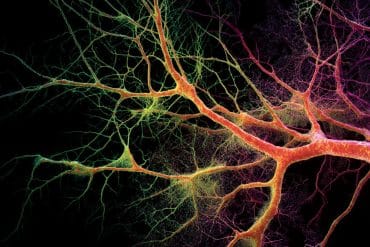Summary: Researchers explored whether the age of autism diagnosis impacts the quality of life in a recent study.
They surveyed 300 autistic adults about their life experiences and factors such as household income, age, and additional mental health conditions. Their results indicated that age of diagnosis was not a significant determinant of life quality when compared to other factors.
The study marks a significant step towards understanding autism across the lifespan and challenges the notion of ‘late diagnosis’ as being detrimental.
Key Facts:
- Autistic women in the study reported a better quality of life compared to autistic men, indicating gender as a more influential factor in life quality than the timing of diagnosis.
- Having more autistic personality characteristics, regardless of the timing of diagnosis, was linked to poorer outcomes across all areas of quality of life. This suggests that focusing on individual characteristics might be more crucial in tailoring support for autistic people.
- The study is contributing to a paradigm shift in the understanding of autism as a lifelong condition, instead of the outdated view of autism as only a childhood condition. This reframing is crucial as most autistic individuals in many countries, such as the UK, are adults.
Source: University of Bath
Receiving an autism diagnosis in your 20, 30s, 40s, 50s or even 60s may seem daunting, but a new study from psychologists in Bath and London finds that the link between the age at which someone gets diagnosed has little bearing on their quality of life.
So-called ‘late diagnosis’ for autism has hit the headlines recently thanks to autism campaigner Christine McGuiness. Whereas autism is usually diagnosed in childhood, it is increasing being diagnosed in adults and especially among women.
Parents often wonder if their child finding out they are autistic earlier or later will have an impact on their lives in the long term. Whilst many people who discover they are autistic as adults wonder what life would have been like if they had found out earlier.
Against this backdrop the new study – carried out by researchers at the University of Bath and King’s College London – is the first to examine whether the age at which one becomes aware of being autistic is linked to their quality of life, after accounting for other crucial factors such as household income.
The researchers asked 300 autistic adults to report the age at which they first learned they were autistic, as well as detailed information about their socio-demographic background such as current age, sex, ethnicity, relationship status, living status, education level, employment status, household income, and the presence of additional mental health conditions. Participants’ level of autistic personality traits was also measured.
Participants then completed questions on different aspects of their quality of life – including physical, psychological, social, environmental aspects. For example, questions such as: “To what extent do you feel your life to be meaningful?” and “How satisfied are you with the support you get from your friends?”.
The results – published in the journal Autism – found that the relationship between the age at which one becomes aware of being autistic and the different areas of quality of life was not statistically linked after considering other factors.
In fact, other factors were more strongly linked to quality of life: Autistic women reported a better quality of life than autistic men, and people who had additional mental health conditions (e.g., anxiety) reported a lower quality of life.
Senior Research Fellow at the University of Bath and Lecturer in Psychology at King’s College London, Dr Lucy Livingston, said: “More and more people are finding out they are autistic for the first time as an adult, which can be a life-changing realisation.
“Because we know that many autistic people experience a very poor quality of life and wellbeing, this begs the question whether finding out you are autistic earlier in life improves outcomes.
“Our findings did not suggest this. For some people, finding out they are autistic sooner rather than later was linked to a better quality of life. For others, finding out later was better. Overall, there was no overall link between the age they found out and their quality of life.
“There could be many reasons for this. Getting an autism diagnosis does not always lead to any meaningful additional support, so it could be that autistic people who learn they are autistic at an earlier age did not necessarily experience a benefit to their life quality.
Equally, a late diagnosis in adulthood can be a positive experience, helping people to make sense of themselves, which may improve their self-reported quality of life.
The take-away message is that the impact of an autism diagnosis on someone’s quality of life is different for everyone. And there may be other, individual factors that are more important to focus on.”
Lead Researcher at the University of Bath, Dr Florence Leung, added: “Our findings revealed that having more autistic personality characteristics – irrespective of when you learn you are autistic – was the strongest link to poor outcomes across all areas of quality of life.
“We are now following up on this finding to look more closely at how different autistic characteristics contribute to quality of life. This will be an important step towards establishing more tailored, more efficacious support for autistic people based on their specific autistic strengths and difficulties and self-evaluation of their quality of life.
“Additionally, being male and having additional mental health conditions was linked with poor quality of life. These observations highlight the importance of considering support strategies that are gender-specific to have a more targeted focus on improving autistic people’s mental health, to improve their life outcomes.
“There has understandably been quite a lot of discussion on autism and mental health in females in recent years but, based on these findings, we should not overlook the needs to autistic males who might also be struggling.”
Co-author and Associate Professor at the University of Bath, Dr Punit Shah, said: “Our research more generally adds to a better understanding of neurodiversity across the lifespan.
“Autism, for a long time, was thought about as a childhood condition. Many still think this way. But people may not realize that most autistic people, in the UK for example, are now actually adults.
“With an aging society, this pattern will increase over the next few decades, so it is critically important that we conduct more detailed investigations into individual differences amongst autistic adults, as we have done.
“Such autism research in adults will thereby start to reveal the many different ways in which we can understand and support autistic people right throughout their lives, moving beyond a ‘one size fits all’ approach.”
About this Autism research news
Author: Chris Melvin
Source: University of Bath
Contact: Chris Melvin – University of Bath
Image: The image is credited to Neuroscience News
Original Research: Open access.
“Re-examining the association between the age of learning one is autistic and adult outcomes” by Lucy Livingston et al. Autism
Abstract
Re-examining the association between the age of learning one is autistic and adult outcomes
It was recently reported that learning one is autistic earlier in life is associated with greater quality of life and well-being in university students.
In a pre-registered extension of this work, we addressed several limitations of this study by (a) recruiting a larger sample of more diverse ages and education levels, (b) distinguishing between learning about and receiving an autism diagnosis, (c) accounting for additional confounding variables, and (d) studying different quality of life dimensions.
Autistic adults (N = 300) reported when they first learned they were autistic, as well as when they actually received an autism diagnosis, and provided detailed socio-demographic information.
Participants also completed measures of their autistic traits, as well as well-being and quality of life across multiple domains. In contrast to recent research, we found the age participants first learned they were autistic did not significantly and uniquely predict their quality of life and well-being.
Rather, having more autistic traits was the strongest predictor of poorer quality of life and well-being, while other socio-demographic factors were also relevant.
We discuss the implications of these findings for understanding and improving outcomes in autistic adults and call for higher quality open science on this important topic.








